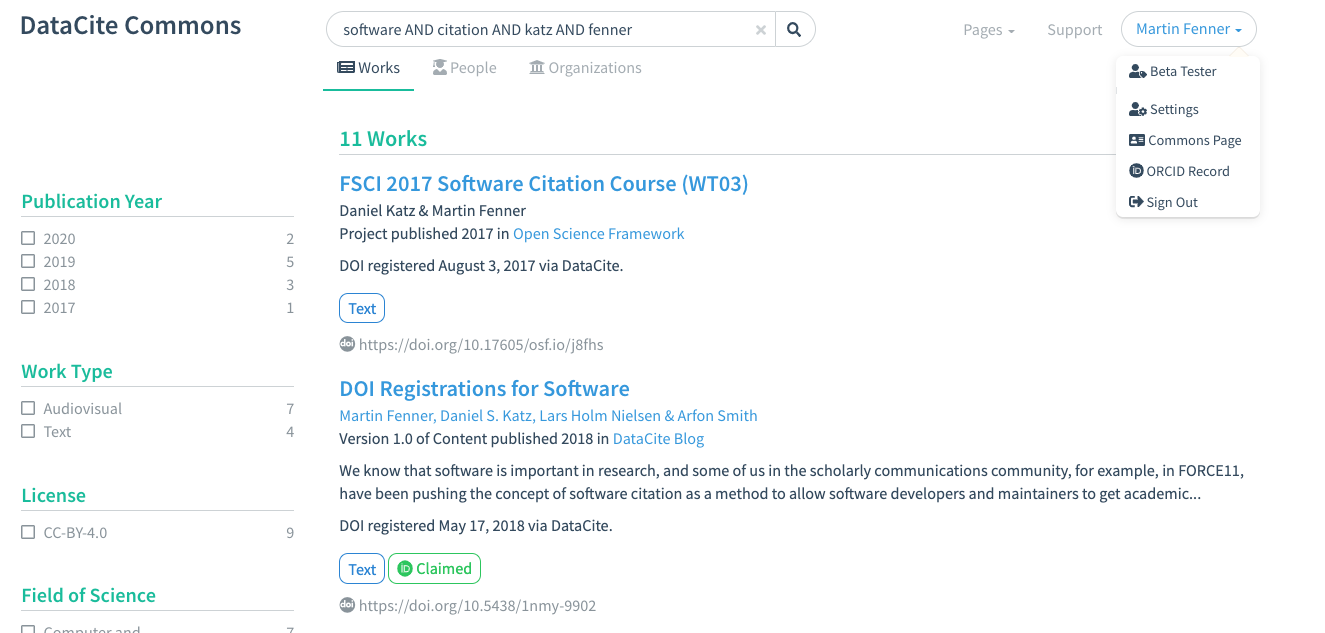
DataCite and the FREYA project partners are proud to announce the official launch of DataCite Commons today.

DataCite and the FREYA project partners are proud to announce the official launch of DataCite Commons today.
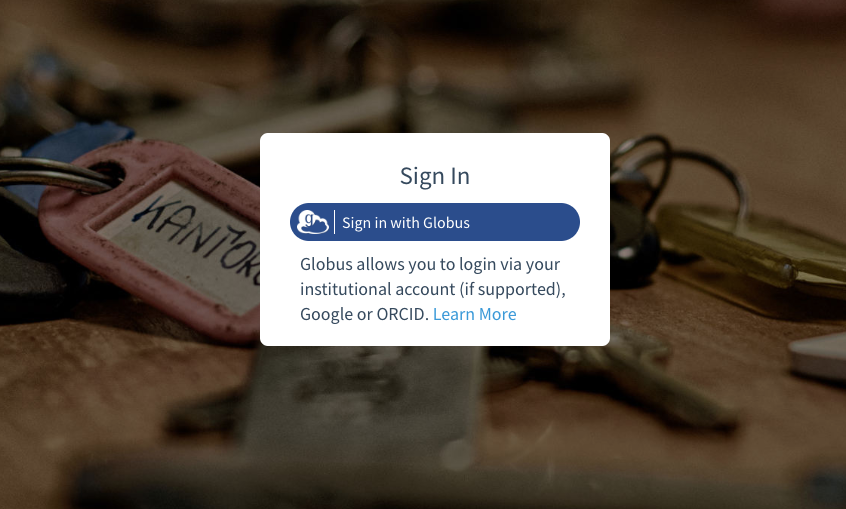
Access to some DataCite resources and services requires authentication so that DataCite knows who is making a request. This includes Fabrica, our DOI registration service that requires a member account, but also our integration with ORCID in the Profiles service, where researchers authenticate with us to allow us to send information about content with DataCite DOIs authored by them to their ORCID record.
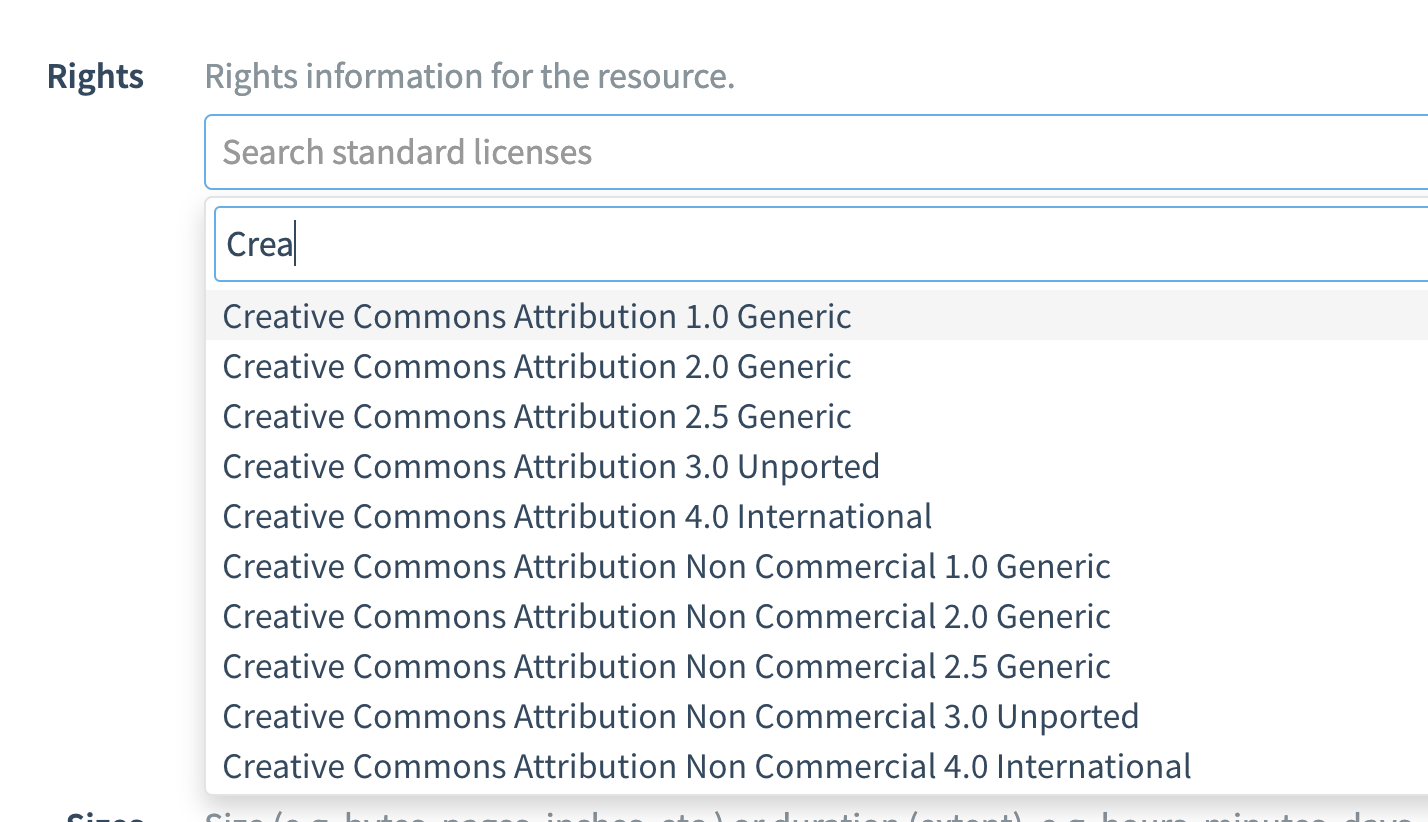
Metadata are essential for finding, accessing, and reusing scholarly content, i.e. to increase the FAIRness [Wilkinson et al. (2016)] of datasets and other scholarly resources.
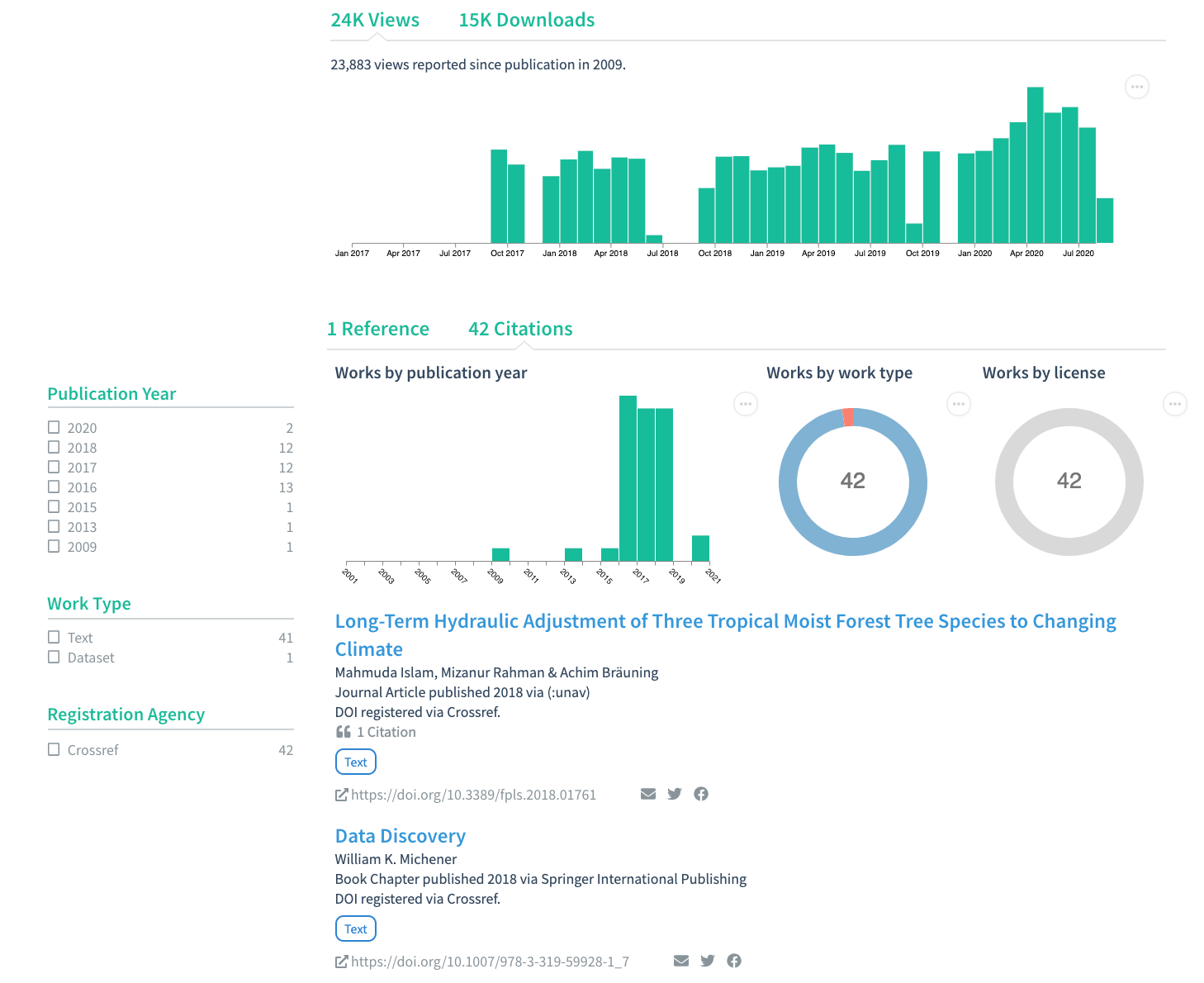
Today DataCite is proud to announce the launch of DataCite Commons, available at https://commons.datacite.org. DataCite Commons is a discovery service that enables simple searches while giving users a comprehensive overview of connections between entities in the research landscape.

In May, the Make Data Count team announced that we have received additional funding from the Alfred P. Sloan Foundation for work on the Make Data Count (MDC) initiative. This will enable DataCite to do additional work in two important areas: * Implement a bibliometrics dashboard that enables bibliometricians – funded by a separate Sloan grant – to do quantitative studies around data usage and citation behaviors.
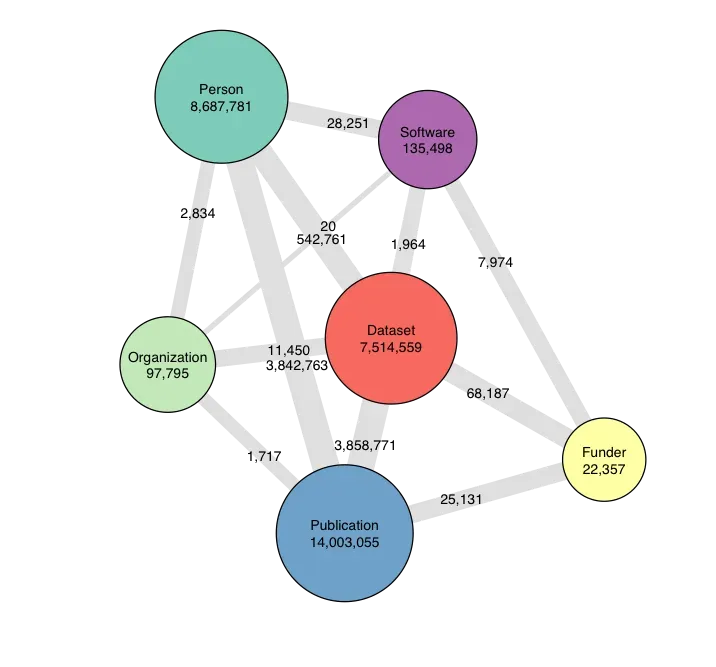
Today DataCite launches a new API that powers the PID Graph, the graph formed by scholarly resources described by persistent identifiers (PIDs) and the connections between them. The API is powered by GraphQL, a widely adopted Open Source technology that enables queries of this graph, addressing use cases of our community in ways that were not possible before.

In a blog post four weeks ago DataCite Executive Director Matt Buys talked about the DataCite strategic priorities for 2020 (Buys, 2020). In this post we want to talk a bit more about the strategic priorities for this year we have regarding services and infrastructure work: a) consolidation of our services and infrastructure, and b) stronger emphasis on member-driven product development.
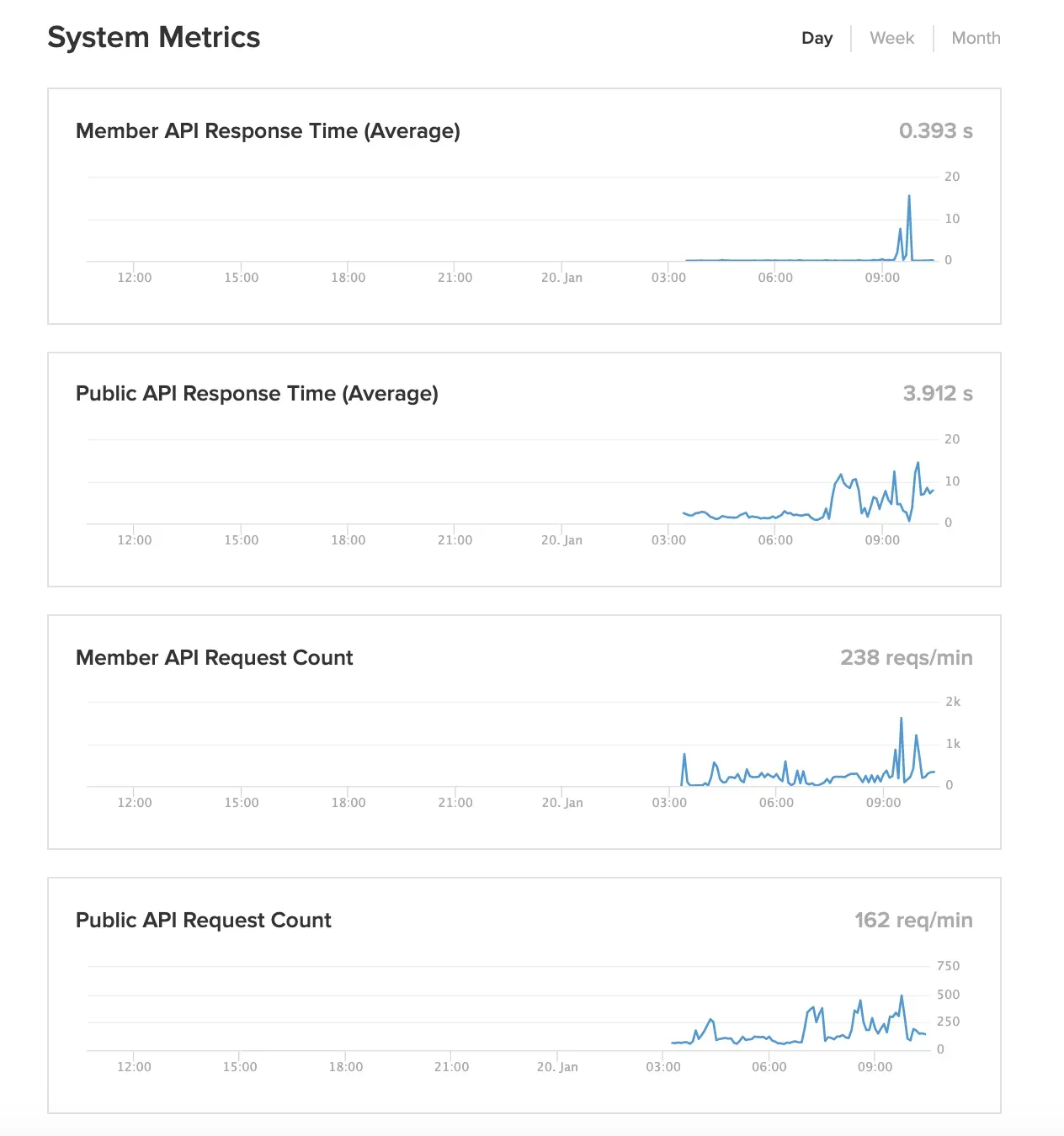
When we launched the new version of the OAI-PMH service in November (Hallett (2019)), and retired Solr (used by the old OAI-PMH service) in December, we completed the transition to Elasticsearch as our search index, and the REST API as our main API.

DOI content negotiation is one of the oldest DataCite services, launched in 2012. Content negotiation makes it easy to fetch DataCite metadata in other metadata formats, for example BibTeX or schema.org, or as formatted citation in one of more than 5,000 citation styles.
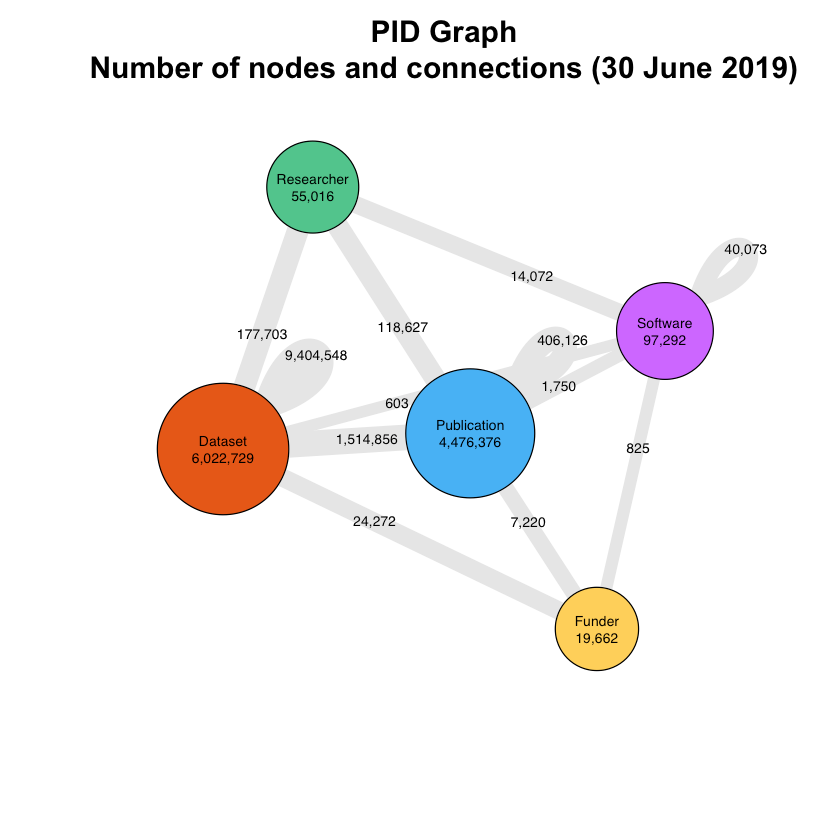
The connections between scholarly resources generated by persistent identifiers (PIDs) and associated metadata form a graph: the PID Graph [Fenner & Aryani (2019)]. We developed this PID Graph concept in the EC-funded FREYA project, and have identified important use cases and technical requirements. In May, DataCite introduced a GraphQL API to standardize and simplify how users can contribute to and consume the PID Graph [Fenner (2019b)].
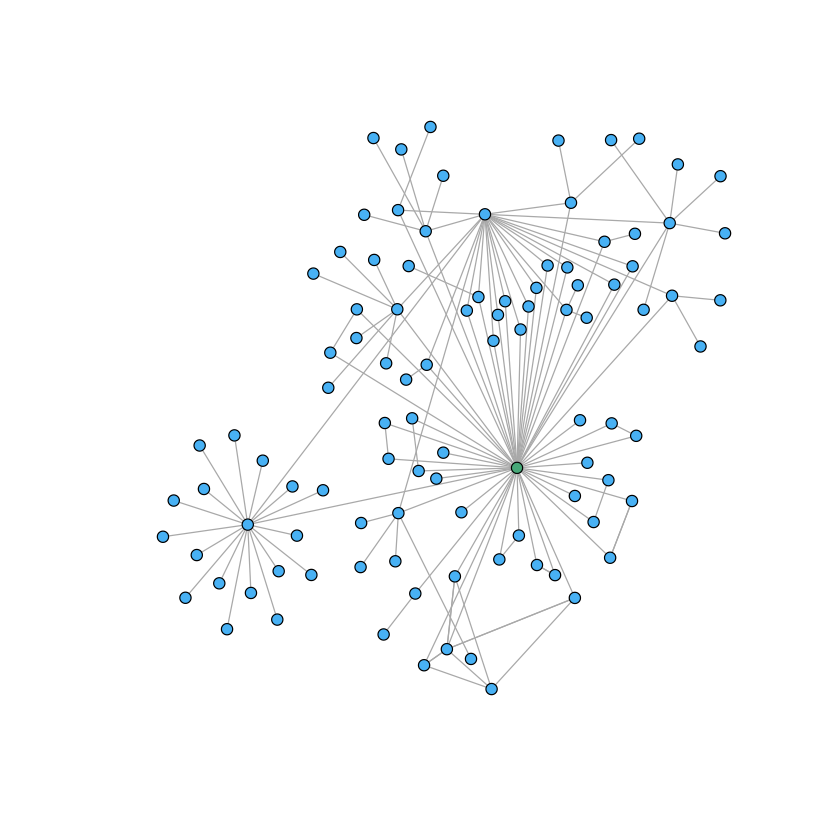
Two weeks ago DataCite announced the pre-release version of a GraphQL API [Fenner (2019)]. GraphQL simplifies complex queries that for example want to retrieve information about the authors, funding and data citations for a dataset with a DataCite DOI. These connections together form the PID Graph [Fenner &